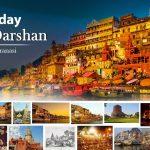
Partition Horrors Remembrance Day
India commemorated the Partition Horrors Remembrance Day to honor the victims of the 1947 violence that accompanied the country’s partition. This day was established by Prime Minister Narendra Modi in 2021 to acknowledge the suffering endured by millions who were uprooted and bereaved during the partition. The day was marked by a series of events across India, including a candlelight vigil at the India Gate war memorial in New Delhi, a special exhibition in Punjab narrating partition survivors’ tales, and a blood donation camp in Kolkata. In a recent address, Modi recognized the partition as a “dark chapter” in India’s history and emphasized that the nation must not forget the “horrors” inflicted on its people. He appealed for the eradication of social divisions and the reinforcement of unity to avert any reoccurrence of such a calamity. The Partition Horrors Remembrance Day serves as a reminder of history’s sombre aspects while also commemorating the resilience and bravery of those who survived the violence. It is a day to ponder the significance of peace and unity, recommitting we to forging a brighter future. On this day, survivors of the 1947 violence shared accounts of anguish and loss. They recounted being compelled to abandon their homes, witnessing the loss of loved ones, and persevering to rebuild their lives post-partition. These narratives underline the agony endured by millions during the partition and underscore the necessity of harmony and peace. The Indian government has pledged to prevent the recurrence of the partition horrors of 1947. On Partition Horrors Remembrance Day, the government affirmed its dedication to establishing a robust and united India where safety prevails. It vowed to take decisive actions to thwart communal violence and promote social concord. Additionally, the government committed to delivering justice to victims of partition-related violence. While the government’s commitment is commendable, it’s crucial to recognize that actions carry more weight than words. Concrete measures are required to avert a repetition of the partition horrors. This encompasses addressing underlying causes of communal violence, including poverty, inequality, and educational disparity. Fostering a culture of tolerance and understanding is also essential. This entails encouraging interfaith dialogues and cultural education while challenging narratives of hatred that often rationalize violence. The partition horrors represent a shadowed chapter in India’s past, but they need not dictate our future. Through collective efforts, we can shape a robust, united India where security and harmony prevail.





